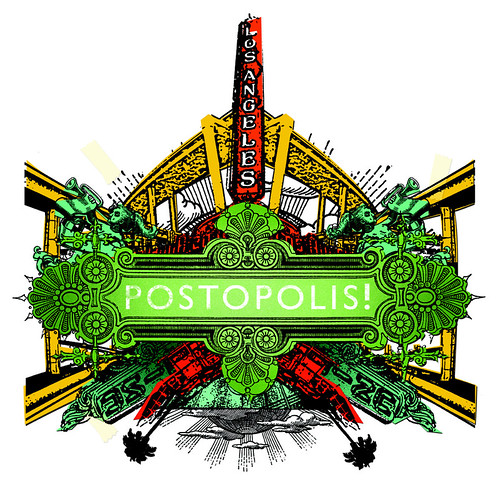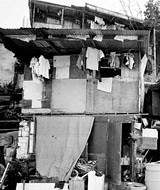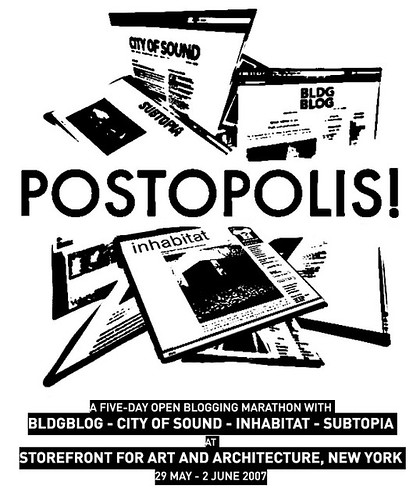Over the Siege 2: Recycling the Wall

[Image: Rafah, southern Gaza. Wastewater treatment plant. ©ICRC/M. Greub/il-e-01749.]
Real quick, continuing on the topic of Palestinians finding ways of transcending the Israeli siege by utilizing the rubble of their own destroyed infrastructure – or what I guess I have referred to as acting “over the siege” rather than “under” it; “over” in this sense signifies that the Palestinian people are acting in plain view using the ruins wrought by the siege as resource for reconstruction, while “under” would mean having to conduct life out of view as through the tunnels underground.
A brief mention a few weeks back that caught my eye: the ICRC (Red Cross) “will repair and upgrade the water treatment center in Rafah with recycled cement from Gaza-war rubble and fragments of the Israeli border wall.”
Again, due to the siege which prevents vital materials like concrete from entering Gaza, critical infrastructure such as sewage plants that were severely damaged by IDF assaults are left to rot and leave thousands of people without basic services like water and sanitation.
Firstly: it is unfathomable to me that damaging this type of infrastructure is not a war crime; secondly: the fact Israel blocks the necessary building materials from entering the country to repair this is unconscionable; but, finally, thirdly: it is perhaps the most symbolic act of all right now on the part of the Palestinians and the international community together to use the bitter pieces of the Israeli Separation Wall to put their own nation back together again -- to simultaneously disassemble the wall and reconstruct the ruins of their own society. Just too important for me not to note here.
As far as I understand, according to the ICRC, the portion of the Israeli barrier that is being recycled to repair the Rafah sewage plant is from the remains of “the old Rafah border wall that lay abandoned after its partial demolition in January 2008.”
Further, they state:
The upgrades to the treatment plant, which are being made in cooperation with Rafah municipality and the Coastal Municipal Water Utility, will help prevent serious risk to public heath and further harm to the environment. In addition, the treated sewage water will help fill the underground aquifer, which is the sole source of water in a territory suffering from a severe shortage.
We will be keeping an eye on this topic in the future.
Related:
Over the Siege
Repurposing the Settlements
A small death in the nomadic fortress' bosom







2 Comments:
This, and specifically the inclusion of the wall is perfectly symbolic and more interesting as a pure pragmatic response.
Well, they block concrete due to the fact that it can (and is) used in the manufacture of military things, such as tunnels, bunkers, and even rocket launchers.
However, concrete is apparently let in for PA approved building projects, which are overseen by the international community.
I just found your blog, and I love it. I'm a freshman at UCSD going for a Structural Engineering degree, so this stuff really catches my fancy.
Post a Comment
<< Home